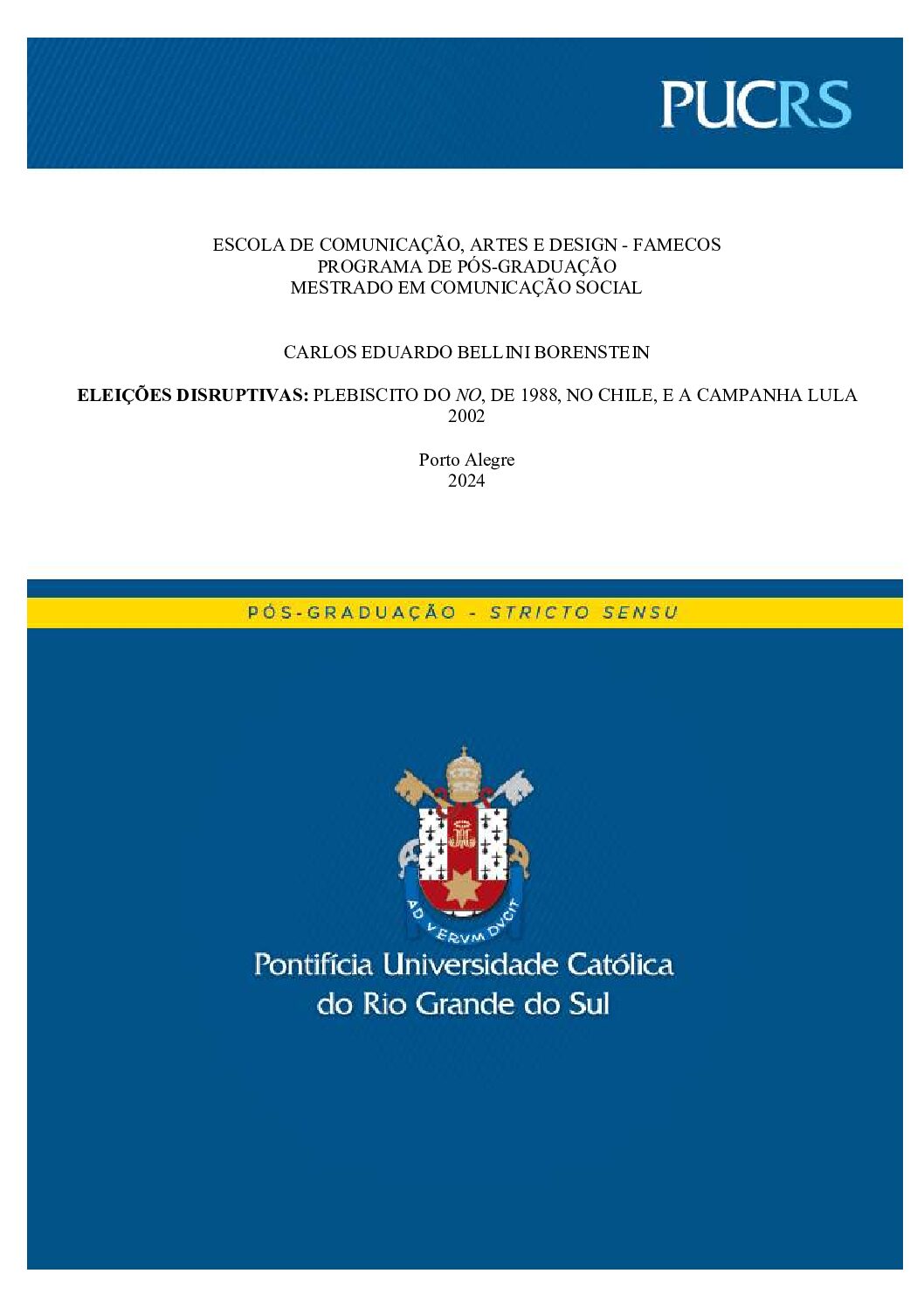The interest group system in Brazil: Corporatism, pluralism and asymmetry of influence
20 de August de 2024Making law matter: environmental protection and legal institutions in Brazil
21 de October de 2024This dissertation will analyze two electoral campaign case studies: the “No” plebiscite that took place in Chile in 1988, when General Augusto Pinochet’s regime was defeated, and Lula’s victorious campaign in Brazil in 2002. The goal is to demonstrate how changes in political strategy, language, and aesthetics were fundamental to the success of these campaigns. We aim to show, based on knowledge from communication and political science, how the “No” and Lula campaigns managed to win over the non-engaged segment of the electorate (1/3), despite this group’s skepticism about political change projects in the face of fear campaigns promoted by their opponents. We will discuss theories of electoral behavior, drawing from Converse (1960 and 1964), Popkin (1994), Castro (1994 and 2014), Downs (1999), Ferraz (2003), and Figueiredo (2008). We will also reflect on political marketing and public opinion, referencing Lasswell (1927), Lazarsfeld (1944), Hohlfeldt (2001), Séguéla (2006), Lippmann (2008), Habermas (2013), and Corbellini (2018), showing that, contrary to what emerged with the rise of rational choice theory (1999), emotion has a significant influence on decision-making processes in elections. The methodology used will be content analysis, following Laurence Bardin (2011).
Source: https://tede2.pucrs.br/tede2/handle/tede/11141

